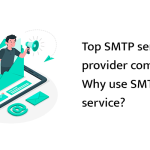Many corporations need to meet the requirements of staff, tools, and abilities to meet customer expectations for call center service. For instance, over 51% of customers expect a response from interacting with a call center in under five minutes. For example, meeting this expectation may not be consistently possible with smaller eCommerce teams. But on the other hand, BPO (business process outsourcing) call centers offer the ability to bridge the gap.
So, today let us have a look into BPO Call Centers.
What are BPO Call Centers?
Business process outsourcing covers delegating business activities and operations to a third-party vendor or service provider. They can be located on the shore, offshore, or nearshore. Similarly, a BPO call center is a professional team of agents who handle incoming and outgoing calls for other organizations.
Especially in organizations where running multiple departments is necessary but not feasible, the business may consider outsourcing to a BPO call center.
To many organizations, there may be better ideas than delegating business activities to a BPO call center. While the employees are professionally skilled, they need to learn about the organization’s culture and products.
It is also important to consider that BPO call center employees are trained to be quick on their feet and adapt to new organizations as needed. In addition, they are often veterans at adapting to new company procedures and processes, with several help desk tools available for quick reference. The result is the ability to comprehensively answer customer queries with adequate knowledge and support. Additionally, many BPO call centers integrate automation and technology at higher capacities. This helps agents meet requirements at higher efficiencies and return on investment.
There are two main types of BPO call centers; ones that handle incoming calls and ones that handle outgoing calls. They serve varying purposes but are extremely helpful to hire based on business needs.
Inbound BPO Call Centers
Inbound BPO call centers are equipped to receive customer calls. They handle concerns like;
- Support Questions
Organizations that offer more complex products plan to receive a “higher than average” number of queries from their customer service and support departments. This is particularly prevalent in healthcare, where prospective users are likely to clear doubts before using.
Bigger organizations that address larger customer volumes can rely on in-house teams to address these inbound calls. However, this decision could be more practical for smaller or growing businesses. They are more likely to delegate the responsibilities to a BPO call center to drop the cost of labor but retain the service provision.
Most businesses that offer products that need more supplementary information are often well-knowledged. They are equipped with the knowledge base resources that BPO call center agents need to educate themselves. With these resources, BPO agents can optimize their service provision.
- Order Processing
Especially with higher-value goods and services, businesses are likely to still take purchase orders via the telephone. The convention is these calls can be time-consuming and require sitting through a tedious cycle of gathering customer information, entering it into the CRM software, taking the payment information, ensuring the order reaches fulfillment, and eventually delivery. The cycle restarts with every new customer and order placed.
BPO call centers can handle this process, giving your core business team added time to address other higher-level business processes. These include marketing, product development, and production optimization. Additionally, most business activities are curbed by office hours. With the introduction of a BPO call center, organizations can handle higher volume requests and can do so over weekends and holidays.
- Dispatch
Dispatch agents take incoming calls from customers to provide a business service. A prime example of this would be taxi companies. When the company receives a dispatch request from a client as a car booking, an agent receives the call and notifies the driver of the service request. This has now been optimized with the introduction of applications.
Businesses are no longer required to introduce many full-time employees to answer all dispatch requests. Some organizations delegate responsibilities during certain time frames to downsize their investment into service provision in-house.
On different days, employees do not need to be overpaid. Delegating to a BPO call center helps keep businesses operational even at odd hours.
Outbound BPO Call Centers
Outbound BPO call center agents are the ones making calls as opposed to how inbound centers work. They focus on reaching large volumes of people and maintain focus on building a better relationship between your products and customers. They handle:
- Telemarketing
Employing the right BPO agents can increase the ROI of telemarketing abilities.
Telemarketing, especially in this day and age, is considered to yield low returns on investment. The art of cold calling has seemingly been lost. This was until the entry of BPO call centers. The hired agents are trained to captivate and be persuasive as they conduct these calls. Their abilities to think quickly on their feet, charm consumers, and present the company mission statement in a palatable way help telemarketing abilities resonate with the customer.
- TeleSales
TeleSales pursues identified leads and looks to close a sale over the phone. These phone calls are critical to increasing revenue, but connecting with potential customers can be challenging. Small teams cannot pursue their large number of leads and often need help bridging the gap between cold calls and the right results. BPO call centers help contact and follow up on all leads in the organization pipeline over a smaller period. This helps generate results faster.
- Market Research
To conduct market research telephonically, businesses are likely to have a standard series of questions and required answers. This makes it easy to outsource to a BPO call center. The agents must be equipped with the required knowledge, such as how to greet the customer and end a call, along with a list of questions. Outsourcing is a cost-effective way to gain insights imperative to effective marketing campaigns and product releases.
Conclusion
Addressing “What is a BPO call center and what it does” is easier done in the context of the services needed to be outsourced. BPO call centers are equipped to handle a slew of business processes at heightened efficiency and effectiveness both at the back end and to customers. Therefore, any business looking to maintain professional expertise without high investment costs should be considered BPO outsourcing.











